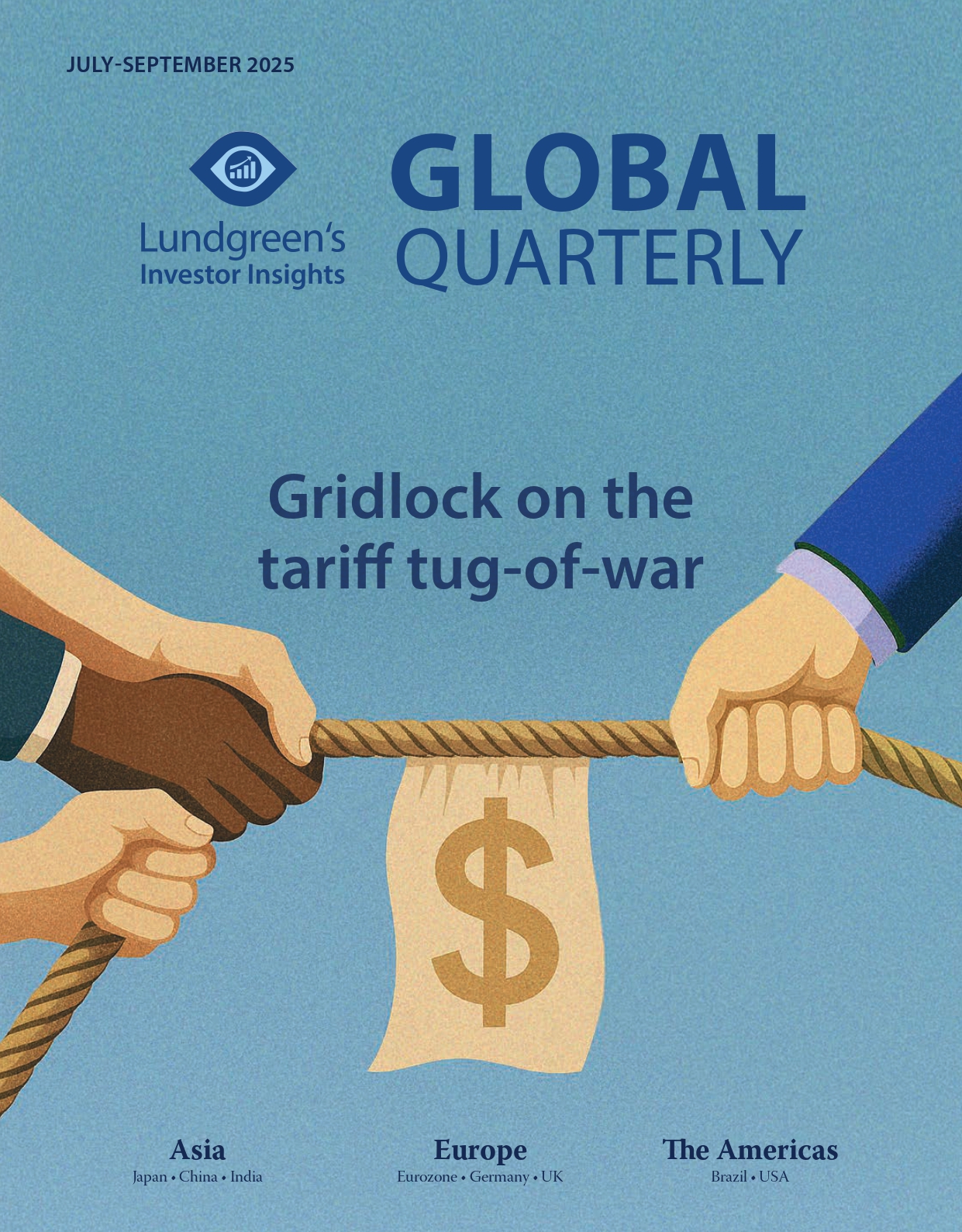Greece is leading the way
In September 2024, the much-awaited report called “The Future of European Competitiveness” was released. The work is led by the former head of the European Central Bank (ECB) Mario Draghi – not a Mister Nobody but a respectable and insightful authority in the field. The report is 400 pages long and includes a list of 170 recommendations, underlining what needs to be done to perk up economic growth.
It discusses EU’s competitiveness – or, let us be honest, its lost competitiveness. For the EU to regain its edge against the US and China, the report works with three major themes: finding opportunities within green technology, particularly in reducing carbon emissions; closing the “innovation gap” relative to US and China; and securing supply chains further. In addition, the report calls for greater support to the following business segments: energy, pharmaceuticals, artificial intelligence, and transportation. Further, the EU must pursue horizontal improvements in innovation, labour skills, and governance.
The European Commission initiated the research, and they would, of course, seek the services of a person that they will listen to. Draghi’s reputation ranks very high in that context. He has the ear of the Commission, which is important for the report to generate any effect, and it did. In January, a “Competitiveness Compass” largely based on the Draghi report laid out the EU’s way forward in restoring its lost spark over the next five years.
The diagnosis
Draghi’s foreword could have been written by a harsh central banker. It goes straight to the point in saying that Europe has truly lost its competitive edge, especially in the IT sector with only four out of the 50 biggest IT companies globally based in the EU.

The report outrightly says that if Europe does not regain growth and competitiveness, the economic bloc will be unable to keep its current social security welfare system, return as a leader in new technology creation, take charge in climate responsibility, and sustain itself as an independent economic region. Europe might not even be able to keep up with other major players in these areas.
We could not agree more. This internal wake-up call should cheer investors and instantly trigger shifts in investment allocations towards Europe.
From the report, we learn that GDP growth must reach 5 to 6 per cent again, fuelled by a surge in private investments, to bring Europe back in the lead globally. This would truly move European stock markets higher. Why have European stocks not jumped on Draghi’s excellent call for action? Because the financial markets are painfully realistic.
Investors are right to be sceptical. Draghi focuses on EU’s losing competitiveness, and his solution to lift GDP growth is via spending. The estimated additional private and public investment need is EUR 750-800 billion (USD 834-890 billion) yearly, where public spending is financed by greater public borrowing. This is an unsustainable proposal and is not the right way to deal with competitiveness issues, even from a broader perspective.
Further, reforming the labour market is unavoidable. If the EU wants to raise its standard of living, work hours must be increased in the face of an aging and shrinking population.
The restart that the EU needs probably requires that 25 per cent of all public spending within Europe to be reconsidered and reduced. In their 7 November meeting in Budapest, members of the European Council said they take Draghi’s report as a “wake-up call” and vowed to enact policies to reinvigorate the region’s competitiveness. These include a new industrial policy that embraces new technology and simplifying reportorial requirements for businesses.
Draghi simply could have written the one-page foreword and used it as his call to action. A central topic in the report was how the US and China are in the lead on innovative technologies, for example. We argue that both countries are taking action to move their economies forward while the EU is standing still with a near-zero growth environment and lacking political leadership – Germany and France are profound examples.
These confirm our view that regardless of how good the Draghi report might be, if the solutions are wrong, progress is unlikely to happen.
Eyes on Greece
Within EU, changes are gaining ground from an unexpected corner. Greece, the economy that suffered the most during the 2008-2009 Global Financial Crisis, is leading the way with true reforms that aim to raise productivity and thereby the country’s competitiveness well ahead of Draghi’s prescriptions.
Since July 2024, companies in select sectors may ask their employees to work six days a week, equivalent to 48 hours weekly. The additional work hours grant a 40 per cent pay increase to workers, though of course, there have been protests against Greece’s new labour regulations.
One could argue that it would be cheaper to hire unemployed Greeks, since the unemployment rate is above 10 per cent in Greece, indicating a labour oversupply. However, the bigger flexibility the new rules provide will improve the productivity and competitiveness of these companies, at least.

Overtime work hours are paid, so this has significant potential to raise incomes in Greece more than usual. If the policy is expanded to all sectors, it would also trigger a reduction in the number of public sector employees to benefit the private sector. This would be another healthy step for the economy.
We trust that these first steps in Greece pave the way for shifting the whole EU labour market towards longer work weeks, providing higher flexibility and greater productivity.
Prime Minister Kyriakos Mitsotakis argues that these reforms are to secure better living standards in Greece. It is the same target that Draghi has, but while his proposals would bring government debt to an even more unsustainable level, Greece navigates a natural path to raise productivity.
Greece cannot move the European markets greatly, but hopefully, they can inspire their mates. If the rest of EU follows this good example, then investments will turn towards Europe again. We choose to keep an eye on the developments in Greece.






